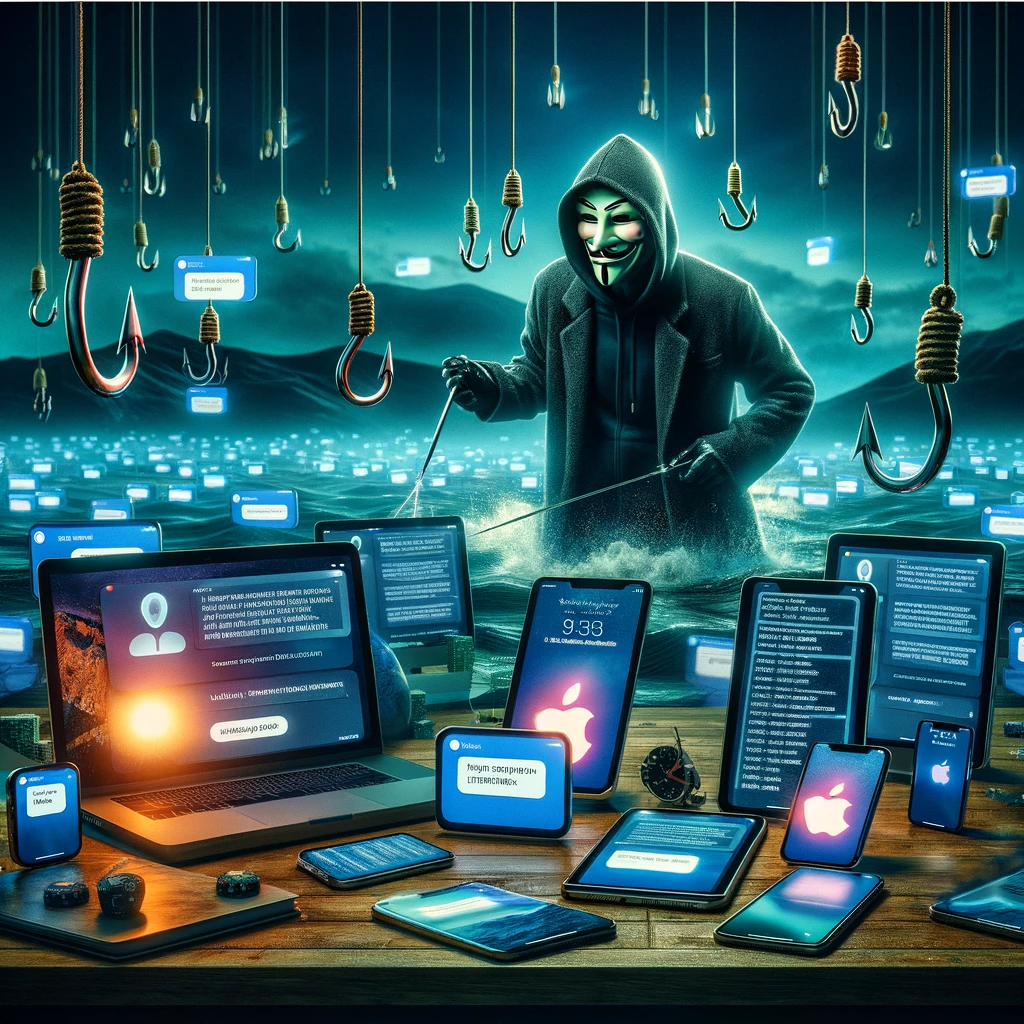Apple Under Siege: Navigating the Maze of Sophisticated Phishing Attacks
Charles M. Walls | March 26, 2024 | Views: 169

Apple users have found themselves in the crosshairs of a sophisticated phishing blitz, leveraged by a potential loophole in the company's password reset mechanics. Victims are barraged with persistent system notifications on their Apple gadgets, demanding an "Allow" or "Don't Allow" response to numerous password reset prompts. This relentless flow can easily trap users into mistakenly authorizing a reset. Adding to the scheme, fraudsters, masquerading as Apple support via caller ID spoofing, contact the victims to "confirm" their identities using a supposedly one-time code.
Highlighting this phishing epidemic, entrepreneur Parth Patel, engaged in the crypto domain, became a noteworthy target. Patel experienced a flood of login approval requests across his Apple ecosystem, an assault known as "push bombing" or "MFA fatigue" attacks, exploiting multi-factor authentication (MFA) weaknesses to the phishers' advantage. His ordeal, shared on Twitter/X, spotlighted the relentless nature of these attacks, rendering his devices virtually inoperable until he addressed each alert.
The underlying strategy of these attackers hinges on weariness; hoping victims will eventually concede to the prompts just to regain device functionality. For Patel, this digital nightmare escalated when a bogus Apple support call followed his refusal to comply, offering accurate personal details minus his actual name. Intriguingly, the incorrect name matched one from Patel's profiles on PeopleDataLabs, a people-search website, hinting at a deeper data breach.
Similarly, a cryptocurrency hedge fund owner, Chris, encountered an almost identical phishing endeavor. Despite initially dismissing the prompts, the attack persisted, leading to an illusive call from "Apple support". Chris's skeptical hang-up and subsequent call to Apple's verified support highlighted a crucial security tip: Apple never initiates unsolicited contact with customers.
Both individuals, along with a security expert identified only as Ken, shared distressing tales of their battles against these phishing tactics. Despite taking measures such as enabling Apple's Recovery Key for added security, the fraudulent prompts continued unabated. This suggests a possible flaw within Apple's system, a suspicion echoed by hobbyist security researcher Kishan Bagaria, pointing towards a potential rate limit bug in Apple's infrastructure.
This series of attacks not only raises alarms about the vulnerabilities within Apple's system but also recalls the successful "MFA bombing" strategies previously employed by the hacking group LAPSUS$ against giants like Cisco, Microsoft, and Uber. In response, tech companies are urged to reinforce their authentication processes, as these incidents reveal the continuous cat-and-mouse game between cybersecurity measures and the evolving tactics of cybercriminals.











